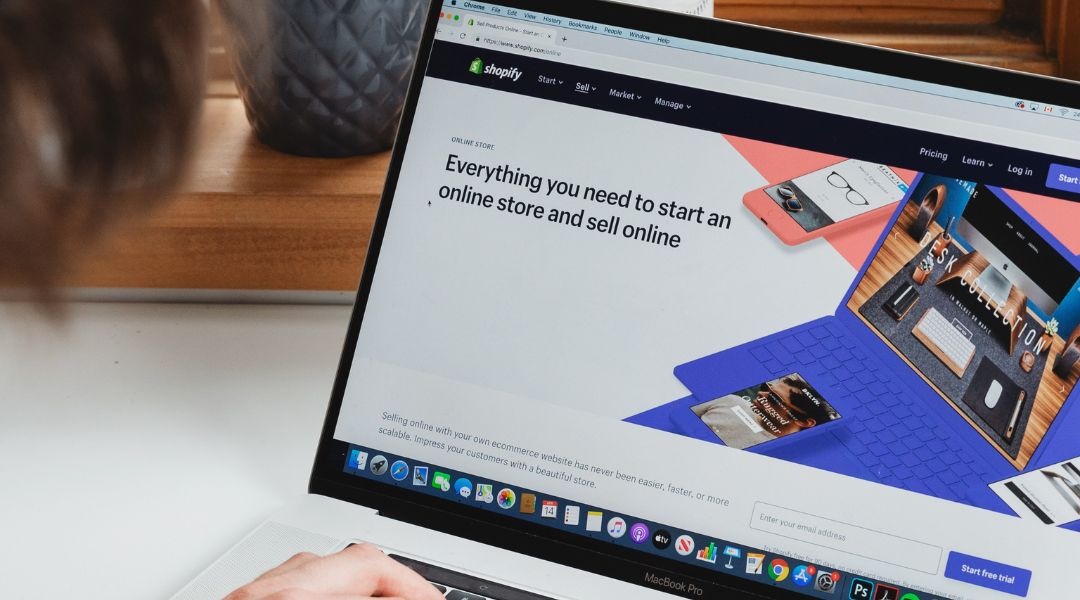Scaling your own ecommerce business, or any business for that matter, can be a daunting prospect.
However, scaling is an essential step for all businesses, so that your business is able to handle an ‘increase in sales, work, or output in a cost effective manner’.
There isn’t a one-size-fits-all method when it comes to scaling, as there are many variables to consider from business to business. That said, when it comes to the process of scaling your ecommerce business you should consider:
- Implementing a CRM system
- Pay-per-click ads
- Investing in SEO
- Utilising referrals and reviews
- PR
- Prioritising retaining repeat customers
1. Implementing A CRM System
CRM, also known as Customer Relationship Management, is a system that helps you to manage interactions with existing and potential customers.
Implementing a CRM system can help you to scale your business by enabling you to manage several campaigns simultaneously and efficiently whilst the business grows.
A CRM system stores customer information, leads, accounts, and sales all in one place. Having access to this data allows you to monitor your sales performance, highlighting where improvements need to be made and also allows you to gain a better understanding of customers.
In fact, 74% of CRM users claim that a CRM system provides them with ‘better access to customer data, allowing for more personalised service’. As such, you can use this data to place an emphasis on maintaining those relationships with your customers and improve customer satisfaction and retention.
Using a CRM system also allows you to automate time-consuming administrative tasks, such as emails and customer support, making for more efficient working.
This also frees up time to allow you to focus on other areas of your business that require immediate attention and promotes productivity amongst employees, all of which can greatly help your ecommerce business during the scaling stage.

2. Pay-Per-Click Ads
Pay-Per-Click ads should be an integral part of your marketing strategy when it comes to scaling a business, particularly when you consider that 90% of consumers claim that ads influence their buying decisions.
To scale your business, it’s essential to enter new geographic markets, as you’ll naturally find locations within your chosen geographic area where your products are completely unknown.
PPC ads not only allow you to target specific areas where your target demographic spend their time online, but they also allow you to remarket to those potential customers.
In short, remarketing allows you to reach a potential customer who has previously interacted with your business online, whether that’s simply through visiting your website or social media page.
Through the process of remarketing, you can even reach individuals that have previously added a product to their basket but failed to convert. As a result, you’re re-engaging audiences that are more likely to convert and will therefore increase your revenue.
When it comes to using PPC ads, such as on Google and on Meta platforms, the ads need to convey a message that is both informative and relevant to your target audience. Failure to attract and engage your audience’s attention within seconds will lead to prospective customers scrolling by.
By harnessing the power of PPC ads, you have the potential to increase brand awareness as well as conversions through reaching wider audiences, making it a good choice to implement into your scaling strategy.
3. Investing In SEO
SEO, also known as Search Engine Optimisation, is the process of improving your website so that it ranks higher on search engines and increases the amount of website traffic that your site gains.
Capitalising off people’s search intent by investing in SEO services is essential when it comes to scaling your ecommerce business. In fact, According to HubSpot, 61% of B2B marketers state that SEO in addition to organic traffic generates more leads than any other marketing strategy.
Considering 93% of ‘all web traffic is via a search engine,’ with a few changes to your site, you could be increasing your web’s organic traffic ten-fold through SEO.
By generating more traffic coming to your website, and increasing your site authority, being diligent about investing in SEO can significantly aid you in the process of scaling your ecommerce business.

4. Utilising Referrals & Reviews
Utilising referrals and positive reviews can significantly help to scale your ecommerce business, and the impact that they can have shouldn’t be underestimated.
In fact, according to BrightLocal, as of 2021, 77% of consumers always or regularly read reviews.
Bearing this statistic in mind, it is clear that reviews have significant potential to either entice or repel new customers from trying and purchasing your product.
Gaining referrals and positive reviews for your business through providing a quality service or product helps you to build authority and keeps customers coming back.
As you gain authority as a business and display these reviews for prospective customers to see, you’re able to build trust with your target audience.
Displaying reviews not only exhibits that your product is the best, but will also have the power to convince potential customers to convert when they find your site.
5. PR
Using PR can help to increase brand awareness by reaching new customers that weren’t yet aware of your ecommerce business.
PR is essential to building brand understanding and interest, and is seen as less invasive than advertising. In fact, according to Forbes, PR is almost ‘90% more effective than advertising’.
This comes down to the fact that PR can help to build brand credibility and generate organic traffic through third parties, often leaving a longer-lasting impact when compared to paid advertising.
PR is also a cheaper alternative to advertising with regards to raising brand awareness, making it an ideal option for businesses trying to scale on a tighter budget.
When paired with SEO, your PR efforts can get people talking about your ecommerce business and help to generate more organic traffic to your website, which is essential for scaling a business.

6. Prioritising Retaining Repeat Customers
An integral part of scaling your business is prioritising high quality customers, also known as repeat customers.
Repeat customers are essential not only to the success of scaling your business, but also to your ecommerce business as a whole.
This is predominantly because the probability of selling to an existing customer is as high as 60 to 70%, but is only 5 to 20% when in reference to new customers.
Turning customers into loyal customers is mainly done through ‘retention marketing tactics’ that place an emphasis on ‘personal customer connection’ as well as providing a service that they are satisfied with.
Through prioritising and looking after your loyal customers, you will be able to make scaling your business a much more manageable process.
Hopefully this article has given you a better understanding of how to scale your ecommerce business.
We are Velocity Juice: we help digital-first companies scale faster by offering flexible eCommerce startup and scale up funding with no equity dilution. For more information about what we do, check out our insights blog or get in touch to speak to a friendly member of our team.


